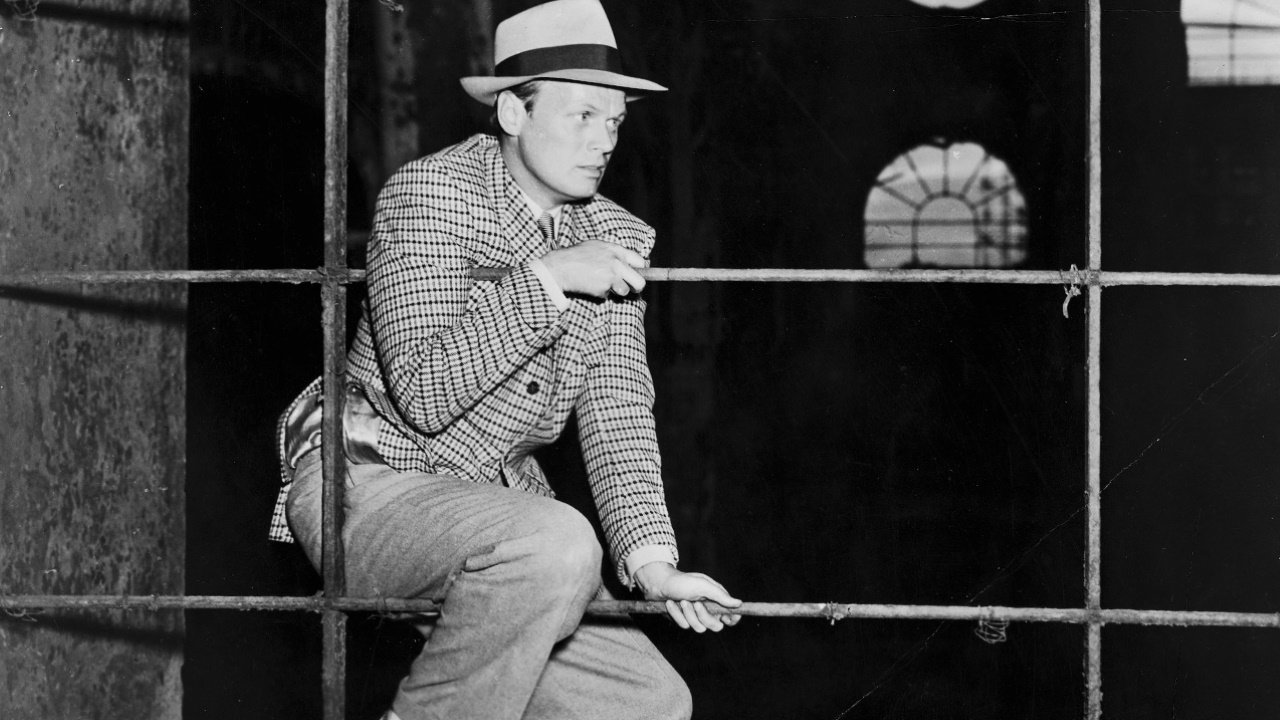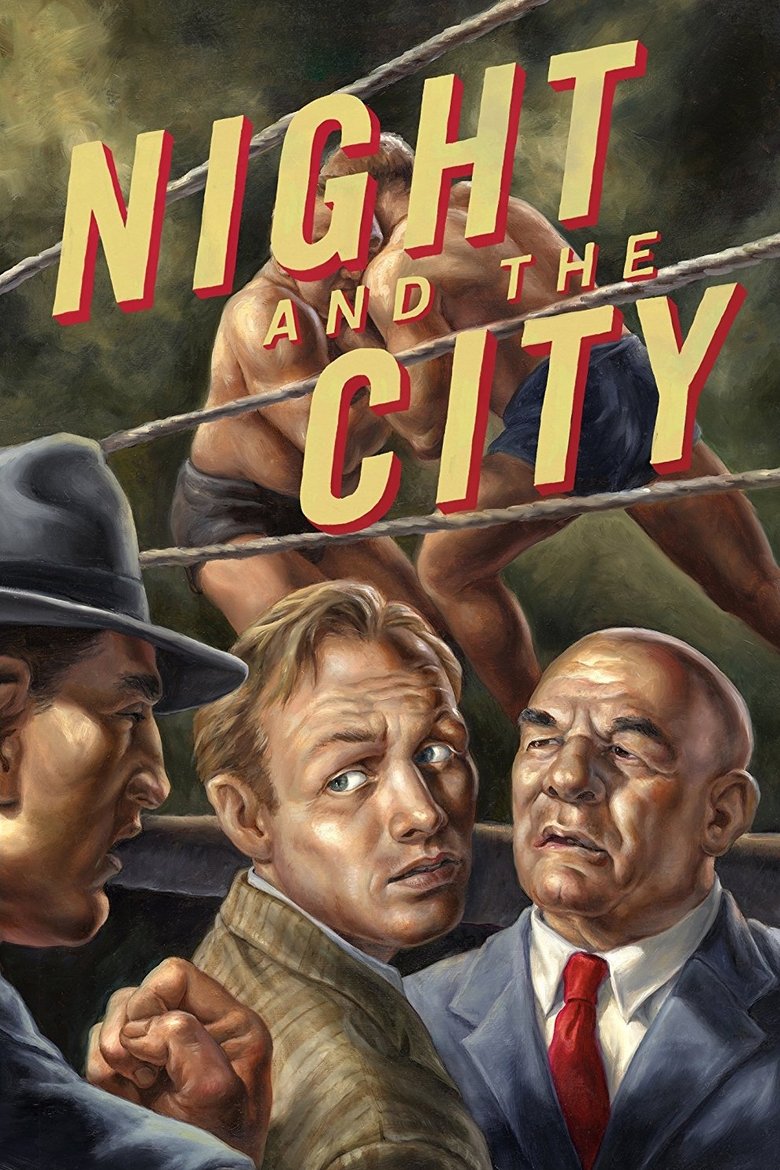
John Chard@John Chard
An artist without an art.
Night and the City is directed by Jules Dassin and is adapted by Jo Eisinger from the novel written by Gerald Kersh. Starring are Richard Widmark, Gene Tierney, Googie Withers, Hebert Lom, Francis L. Sullivan, Mike Mazurki & Stanislaus Zbyszko. The score is composed by Franz Waxman and Max Greene is the cinematographer. It's shot on location in London, England.
Harry Fabian (Widmark) is a hopeless dreamer, a two-bit hustler who aspires to make it big and never want for money again. Over hearing retired wrestling superstar Gregorius (Zbyszko) bemoaning the fake wrestling bouts put on by his underworld son Kristo (Lom), Fabian hatches a plan to set up his own wrestling empire backed by Gregorius. Thus he be safe from retribution from Kristo and his heavies. That is as long as Fabian does right by Gregorius and doesn't abuse his trust. Things get complicated, though, as Fabian needs money to back the venture, money he hasn't got. So systematically he drags into the equation his girlfriend Mary Bristol (Tierney), club owner Phil Nosseross (Sullivan) and Sullivan's wife, Helen (Withers). Pretty soon things start to spiral out of control.
Night and the City has been called many things, from baroque masterpiece to being a turgid pictorial grotesque! Polar opposite reactions that have now, over time, dovetailed into a majority agreement from film noir purists that it is indeed one special piece of film noir movie making. The film opens in quite an unassuming way as the title sequence brings views of leisurely London, then Dassin does a voice-over telling us that "The night is tonight, tomorrow night or any night. The city is London." We then cut to a man on the run, pursued by a person unknown. The man being chased is Harry Fabian, sharply attired in suit and hat, he has left pictorial London and is now running through bomb afflicted London, through murky alleyways. Until sanctuary comes at his girlfriend's tidy flat, the contrast between the two worlds of Harry Fabian neatly marrying American film noir with British kitchen sink-ism.
However, that sanctuary is a rare ray of hope in Dassin's movie, a cunning trick by the makers, for Night and the City is ultimately a dark and brooding picture, one that deals in corruption & paranoia, with a pervading sense of doom hanging heavy like a death warrant issued by some heavy underworld crime lord. The characters in this part of London are mainly blank personalities, cold and calculating, crooked and immoral. That Fabian is only a lesser light, on the lower rung of this seamy ladder, is irrelevant, because he aspires to become just the same, only richer. Duplicity and betrayal are things he's happy to jump in bed with, and we the audience are part of it as we view this story through Fabian's hopeless and oblivious eyes.
Yet the movie, in spite of its uncompromising story, is by turns exciting & pacey, even breath taking, driven by one of the finest scores put down in film noir as Waxman prods and probes with pulse beats and deft ear clangers. With Greene's expressionistic and daring photography blending seamlessly with the mood crafted by director and composer alike. The cast are mostly strong, with Widmark, Zbyszko & Withers actually terrific, the latter involved in a superb wrestling sequence with Mazurki. At times heart pounding, at others wince inducing - if you find yourself holding your breath - then that's OK, it has that effect on many. Tierney was cast as a favour to Darryl Zanuck who was worried about Tierney's mental health at the time. She looks radiant and offers up an interesting counterpoint to all the darkness within the story. Dassin spoke very favourably of her work on the film, saying she was no trouble at all and a consummate professional.
As for Dassin himself? Well he was, thanks to the HUAC outcry, about to be out of work and on the run. He moved to Europe and never worked in America again, he returned from film making exile five years later where he would make the much revered Rififi in France. A truly excellent director, capable of pacing a film to precision and holding an audience in an atmospheric vice like grip. Night and the City is his masterpiece, and as it happens it is also one of film noir's greatest treasures. 10/10

CinemaSerf@Geronimo1967
Jules Dassin has assembled a top-drawer cast for this thriller. An on-form Richard Widmark ("Fabian") is a bit of a low-life grifter in London who encounters the huge, but ageing, champion wrestler "Gregorius" (Stanislaus Zbyszko) and concocts a plan that could make them both extremely wealthy men. Of course, the best laid plans never quite work out, and soon his internecine web of lies, deceit and sheer blind optimism have him on the back foot and at the mercy of his business partner "Nosseross" (Francis L. Sullivan) amongst others. The writing provides a framework that allows the actors to shine - sparing appearances from Gene Tierney (like Widmark, himself, just a touch fish-out-of water as ostensibly Londoners with an accent from anywhere but) work well, as does Googie Withers, Herbert Lom and the always dependable Sullivan. There is plenty of action, the pace builds well and there is some gripping wrestling action here too. You can't really help but feel a degree of sympathy for "Fabian" - try as he might, he just has that certain smell of failure abut him. The photography captures well the vivacity of a city still very much recovering from the Blitz, of the optimism of it's population and of the greed and materialism of those pulling strings. Well worth a watch, this film.

